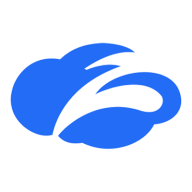

Cloudflare and Zscaler Internet Access both compete in the network security and performance enhancement category. Cloudflare appears to have the upper hand in CDN and ease of setup, suitable for small to medium-sized enterprises, while Zscaler excels in advanced security features and scalability, favored by larger enterprises.
Features: Cloudflare offers CDN caching, DDoS protection, and DNS management, which help improve load times and reduce server load. Zscaler Internet Access features advanced threat protection, SSL inspection, and URL filtering, providing comprehensive security control.
Room for Improvement: Cloudflare needs more responsive technical support, better speed in CDN features, and advanced threat analytics. Zscaler faces challenges in system integration, high pricing, and user experience in remote areas, along with a need for on-premise components.
Ease of Deployment and Customer Service: Cloudflare offers seamless deployment across mixed cloud environments, though its customer service varies by tier. Zscaler is easy to deploy within cloud environments but lacks local support, although customer service is generally fast and knowledgeable.
Pricing and ROI: Cloudflare provides flexible pricing, starting at no cost, with significant ROI for content-heavy sites. However, prices can increase sharply with higher tiers. Zscaler, while more expensive, offers scalability and comprehensive security for large enterprises, making it a worthwhile investment for organizations prioritizing advanced security.
For the small project I was working on, using the basic tier provided a huge improvement at zero cost.
In terms of return on investment with Cloudflare, it costs my time to set them up, but basically once they're set up, it's done.
The managed service aspect of Zscaler Internet Access has allowed for reduced staffing costs, resulting in a saving of approximately 20-25% compared to prior expenses.
Cloudflare does not offer hands-on technical support to fix customer problems but rather a self-service model.
I would rate the technical support with Cloudflare as excellent every time I've had to call them.
I have primarily worked not with the tool's customer support but with the product's sales engineers and technical sales engineers, who seem to know their stuff.
The technical support for Zscaler Internet Access is rated around seven out of ten due to some response time issues and the engagement model.
Zscaler Internet Access customer service is really very good.
I find customer support to be quite adequate
It is a SaaS tool, but the fact that they have workloads deployed across the world proves that it is a highly scalable tool.
The tool offers very good performance, even during high-traffic periods.
I rate the solution’s scalability an eight out of ten.
With the pricing structure that they currently have, it is only for big customers.
I find Zscaler Internet Access to be highly scalable, which was one of the reasons for choosing it.
Zscaler Internet Access is scalable and has points of presence across the globe to ensure low latency and reliable connections.
I rate the solution’s stability an eight out of ten.
The service is very stable with no impacts during high-traffic periods.
Zscaler Internet Access is stable and capable of building resilient architectures.
Zscaler Internet Access is very stable, and I would rate its stability as nine out of ten.
Despite these challenges, overall, Cloudflare remains the preferred solution compared to Azure, AWS CloudFront, and Google Cloud Armor.
Areas like how assessment, discovery, and payload are dealt with and how it all comes into your organization can be considered when trying to make suggestions to Cloudflare for improvements.
There are some performance considerations when it comes to dynamic content that involves fetching data from databases or using APIs.
The response time and engagement model for technical support could be improved to handle complex outages more efficiently.
In future updates, I would like to see some of the features bundled into the existing product set, perhaps more AI features and a refreshed interface.
Zscaler Internet Access has introduced AI control for tools such as ChatGPT, providing options to restrict to text-only input without file or image uploads through CASB restriction controls.
I find it to be cheap.
I rate the product’s pricing a five out of ten, where one is cheap, and ten is expensive.
The tool is a premium product, so it is very expensive.
Zscaler Internet Access is recognized as an expensive solution.
Zscaler Internet Access is less expensive than competitors like Palo Alto, offering a premium service justified by security enhancements and cost-effective scalability.
Of course, it is an expensive product.
The most valuable features of the solution are performance and security.
Techniques like minification and image compression reduce the size of assets, leading to better performance and faster user load times.
The solution has been able to compare it to the market, and I think the product has taken great strides in automating quite a bit of things, and they use a lot of AI.
It prevents numerous web attacks through its AI/ML incorporated capability which identifies malware, threats, and viruses.
Zscaler Internet Access has positively impacted my organization by reducing the dependency on on-premises hardware and improving security posture, enabling faster user onboarding, and providing better performance for remote users.
The most valuable feature for me is the ability to see how my network and traffic looks with modules like analytics and insights.
| Product | Market Share (%) |
|---|---|
| Cloudflare | 16.7% |
| Arbor DDoS | 9.8% |
| Radware DDoS | 8.2% |
| Other | 65.3% |
| Product | Market Share (%) |
|---|---|
| Zscaler Internet Access | 13.3% |
| Cisco Umbrella | 15.1% |
| Prisma Access by Palo Alto Networks | 9.2% |
| Other | 62.400000000000006% |

| Company Size | Count |
|---|---|
| Small Business | 46 |
| Midsize Enterprise | 8 |
| Large Enterprise | 25 |
| Company Size | Count |
|---|---|
| Small Business | 17 |
| Midsize Enterprise | 9 |
| Large Enterprise | 38 |
Cloudflare enhances web performance and security with features like CDN caching and DDoS mitigation while providing easy DNS management and intuitive setup through its user-friendly dashboard.
Cloudflare is recognized for its comprehensive web security and performance solutions. Speed improvements are achieved through caching mechanisms and DDoS protection, combining ease of DNS management with flexible page rules. The robust analytics and threat insight tools provide valuable data, assisted by a user-friendly dashboard allowing quick setup and configuration. An API offers dynamic DNS settings ensuring low latency and high performance across the globe.
What are Cloudflare's key features?Cloudflare finds utility across industries for DNS management and defense mechanisms. Its content delivery network assures fast content distribution and fortified security. Businesses integrate features like web application firewalls, load balancing, end-to-end SSL, and zero trust to protect websites from cyber threats while ensuring resilience and reliable performance.
Zscaler Internet Access is a cloud-native security service edge (SSE) platform. Its main purpose is to provide AI-powered protection for all users, all applications, and all locations. The solution replaces other legacy network security solutions to stop advanced attacks and prevent data loss by using a comprehensive zero trust approach.
Zscaler Internet Access Features
Zscaler Internet Access has many valuable key features. Some of the most useful ones include:
Zscaler Internet Access Benefits
There are several benefits to implementing Zscaler Internet Access. Some of the biggest advantages the solution offers include:
Reviews from Real Users
Below are some reviews and helpful feedback written by Zscaler Internet Access users.
A Service Manager at a construction company says, "There are a bunch of different capabilities that are valuable within the platform. We use quite a lot of them, but not everything. The ones that are most important to us are the URL Filtering and the application control. For our needs, the cloud-native proxy architecture is a very good solution. This architecture helps with cyber threats because we inspect most of the traffic and we can see that a lot of threats are stopped directly in the secure web gateway."
Owen N., Security Architect at Claro Enterprise Solutions, explains that the solution’s most valuable features include “The integration of the gateway that inspects all ports and protocols. So, there is threat prevention; The cloud sandbox; VNS security; Access control that will protect URL filtering and the cloud firewall; Data protection that will protect your gateway, like your CASB or your cloud DLP; The capabilities of this will point your traffic to Zscaler Cloud.”
An Architecture Senior Manager at an insurance company mentions, "The data loss prevention feature is the most valuable. It stops our users from inadvertently leaking our customers' data to the Internet or anywhere else it shouldn't go." He also adds, “The solution provides quick access to cloud services, securing our data and allowing us to inspect all our traffic.”
We monitor all Distributed Denial-of-Service (DDoS) Protection reviews to prevent fraudulent reviews and keep review quality high. We do not post reviews by company employees or direct competitors. We validate each review for authenticity via cross-reference with LinkedIn, and personal follow-up with the reviewer when necessary.